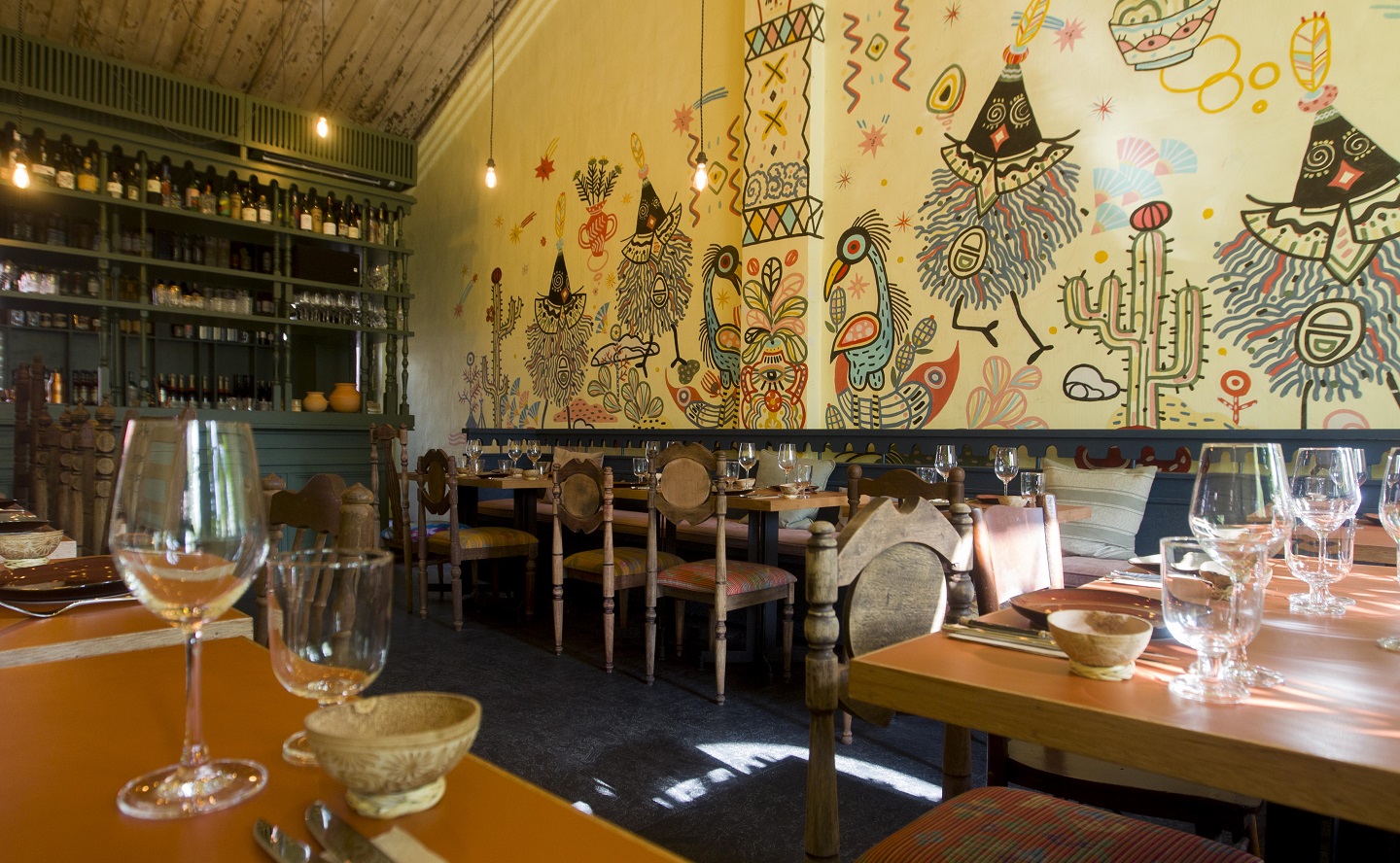
The restaurant and bar features stimulating colours and textures, from illustrative wall art by tattooist Apoh Apoh (All photos: Patrick Goh/The Edge)
Liming, built around the Caribbean word “lime” to mean a gathering, is a heartfelt cultural expression from the region. It typically reflects any social act of coming together, but I remember it best as barbecues and parties with my Caribbean classmates in university — high-spirited affairs with a heady variety and volume of food, catchy music, spontaneous bursts of dancing and animated conversation throughout.
The recently opened Joloko in Chow Kit, Kuala Lumpur, imports all those elements, leaving only conversation and dancing to be supplied by customers. The restaurant and bar features stimulating colours and textures, from illustrative wall art by tattooist Apoh Apoh to swathes of exposed brick walls, tiled table tops and rattan chairs. Al fresco seating is available but we chose to sit indoors facing the open kitchen. The double volume ceiling in our section infuses a sense of height, giving a view of the bar area on the mezzanine floor and the darkening sky above, as seen through the glass roof. Sparse lighting contributes to the anything-can-happen atmosphere, heightened by comprehensive mescal and tequila selections.
As the waitress fills our glasses with water from a vase, we ask about the empty husks next to our banana leaf placemats. We had guessed that they were for washing our fingers in, but these little wooden containers are jícara, made from the fruit of the calabash tree and used for shots.
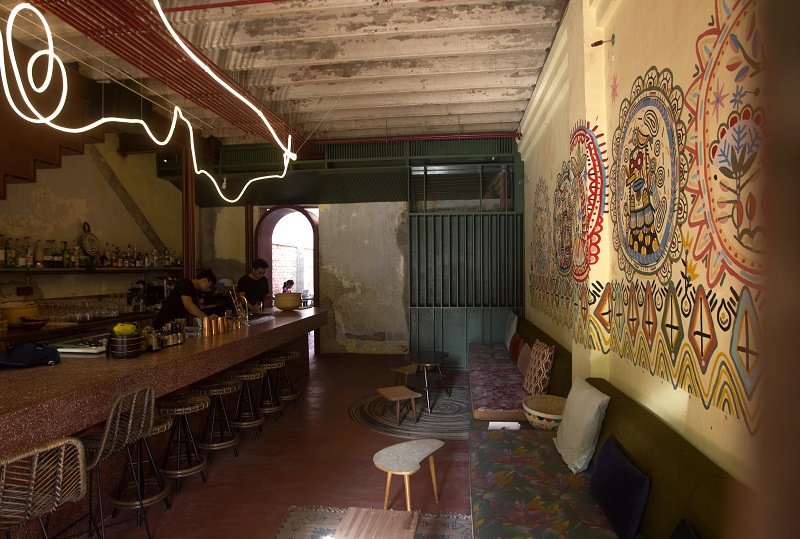
The menu is wide enough to offer variety without being bewildering, encompassing breads and dips, platters for picking and meaty main courses for sharing. A vegetarian would not go hungry here, with the selection of sides and starters, but Joloko favours the carnivore.
Caribbean cuisine tells the story of its people, drawing from a vast array of influences. When Europeans invaded the Caribbean islands, they brought in African slaves, who lived on the leftovers of their owners, made palatable with spices and ingredients such as okra and salt fish, which they had brought with them. The “jerk” cooking style from Jamaica is an example of this period — a dry-rub or wet marinade of a hot spice mixture used for meat. When African slavery was abolished, Chinese and Indian labourers were brought in, marking the introduction of rice and curries here — the famous Caribbean curried goat is one such cross-cultural exponent. Passing sailors also left their mark, including the Spaniards who brought in tamarind, date palm and fig trees. As a result, the region became synonymous with wide-ranging and nuanced flavours, most of them big, bold and hearty.
Our Spinach with Flatbread (RM20) does not quite reflect this. The salted flatbread is a tad too floppy to lift the cold and creamy dip. The latter is dense and the combination of the two seems somewhat stodgy. The corn chips from the Pork Carnitas (RM30) that followed cut through the dip better while the flatbread does an excellent job of mopping up the rich gravy of the dish.
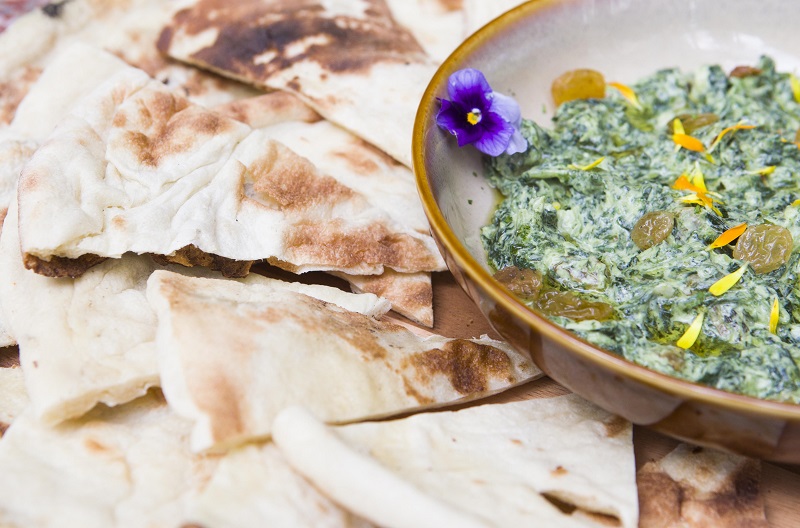
In itself, the pork carnitas is lovely. The marinade is a pungent blend of peanut, spiciness and a prickle of sweetness. We ask the waitress what was in it and after briefly conferring with the chef, she returned laughing to tell us it was “very complicated and has a bit of everything”. The pork is so tender it fell off the fork and, paired with the gravy, accented with sunflower seeds and the odd crisp slice of radish, makes for a pleasing mouthful of texture.
The gravy is savoured down to the very last drop; what the bread doesn’t wipe, our Jollof Rice (RM20) does. The one-pot rice dish is popular in Western Africa, featuring soft rice cooked with peas, tomatoes, chilli and, at a guess, rosemary, with a coriander garnish. It goes down easily on its own but also proves handy in finishing traces of sauces and curries.
Paired with the Jerk Chicken (RM65), its vivid tang complements the poultry. The chicken is well charred but could do with a little more salt. That said, it is more succulent than cooked chicken had the right to be, its juiciness contrasting with the bite of chilli in the jollof rice. The accompanying mango salsa is not as zingy as we would like but the pickled red cabbage — strong and textural — makes up for it. The chicken, part of the mains, is large enough for the three of us but takes some time to prepare, so order appetisers first if hungry.
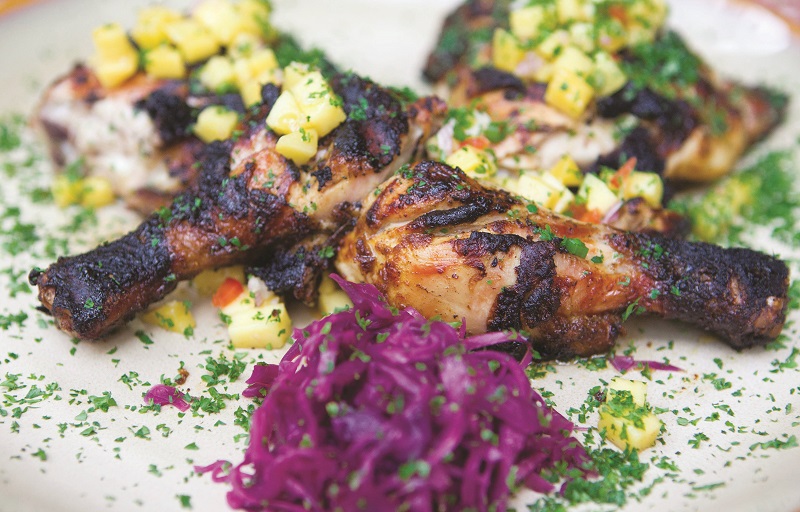
We recommend the Prawn Tostadas (RM35) to do this job with aplomb. Nothing in this dish is superfluous or without intent — the fresh prawns are firm and sweet, the corn chips are crisp, the pickled red cabbage vibrant and the avocado-like spread holds the various ingredients in place. The entire dish is tied together with squeezes of lime, which uplift the spread, enhance the brine of the cabbage and brighten the prawns.
All sorts of enticing platters are coming out while we are eating, a common pitfall sitting within view of an open kitchen. They stoke our greed and we decide on another main course to share. The Shredded Beef comprising the Ropa de Vieja (RM55) has an unusual pale colouring and is remarkably tender and luscious. There is again that confusing melange of spices that has us trying to guess what’s in every bite, grounded by the assertive herbs of the chimichurri. While eating this, I bookmark the grilled trevally for my next visit. The herb-garlanded fish evoked serious plate envy when served at the next table.
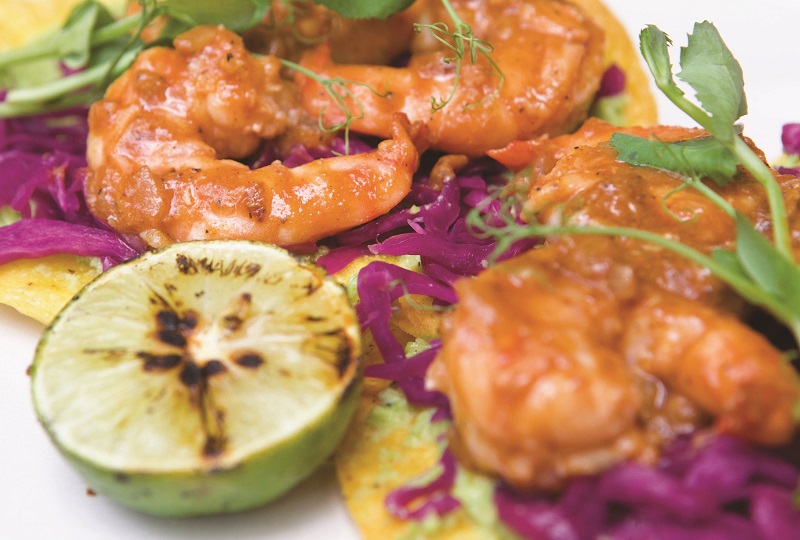
Joloko is named after the spicy jolokia pepper, also known as ghost chilli. It briefly held the world record for spiciest pepper in 2007. I cannot verify if it is actually used in any of the dishes here, but I highly recommend a visit for the overall piquant and abundant flavours. Go in a big group to better eat your way through the menu. A Caribbean lime is inherently social, and few acts beat the communal pleasure of eating and unwinding over drinks, particularly in a fun setting.
Joloko, 43 Jalan Kamunting, Chow Kit, KL. 03 2694 1100. Tues-Thurs & Sun, 5pm-1am; Fri & Sat, 5pm-2am. This article first appeared on Oct 8, 2018 in The Edge Malaysia.


